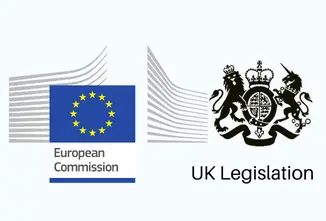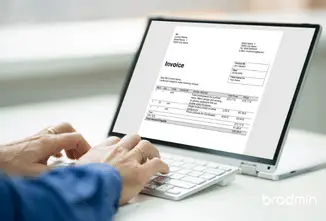The late payment directive was created because late payments are a significant obstacle in the UK as they affect the free movement of goods and delivery of services, which substantially distorts businesses. The result is financial burdens that increase costs and impede trade.
SMEs are the most vulnerable as they are not able to sustain their businesses without cash flow. Therefore, the late payments directive has been created to help eliminate or manage this problem while ensuring that clients pay their invoices on time.
The late payment directive is geared towards creating an environment of on-time payments and making this the norm. [1]
Late payments are unacceptable for the business community and should be eliminated entirely.
The European Commission believes that an effective late payments directive by all the EU Member States would mean an influx of billion into businesses. This is roughly how much businesses are owed in terms of unpaid invoices. [2]
This directive is based on the UK legislative. The UK is considered an exemplar among the Member States, including the measures it has already introduced to drive the early payment culture as per the agreed terms.
Evidence shows that the best way of securing timely and correct payment is to agree on the terms in advance of the transaction and ensure that the invoices are delivered on time and accurately.
Main provisions of the directive
In 2000, the EU adopted the 2000/35/EC directive to combat the late payment of commercial debts. This was implemented in the UK as – The Late Payment of Commercial Debts Regulations SI 2002/1674. [3]
Unfortunately, there was overwhelming evidence that the directive was not working and that late payments were still a general problem in the EU.
Therefore in 2009, the EU published a proposal to the directive to repeal and replace the first one.
This new draft was forwarded to the EU parliament and to the council of the European Union for consideration as per the co-decision procedure.
So, in September 2010, The EU Parliament then announced that they had reached an agreement with the council to effect the changes on the draft for the new late payment directive.
The commission formally adopted it as the proposed directive, although there have been many amendments.
As per the provisional version of the resolution, the amendments are summarised as follows:
Business to business transactions
When payment is not stated
If the contract does not specify a payment period, then the purchaser must make payment within 30 calendar days after the following:
- Receiving the supplier’s invoice.
- Receiving the services or goods.
- Acceptance and verification of the goods or services where the statute provides for it in the contract.
Through agreement
If the two parties have an agreed period of, let’s say, 60 days, then payment should be made by then unless there is another agreement made by the parties and one that is not grossly unfair to the supplier.
Public to business transactions
All public authorities are required to make payment within 30 calendar days of:
- Receiving the invoice.
- Receiving the service or goods.
- Verifying the goods or services.
The UK Government puts these stringent measures on the public sector because they should set a strong example for prompt payments. With time, they have been improving on their payment times to assist businesses with their cash flow.
This directive was imposed on the Member States for commercial transactions where the client is a public authority. Their payment period MUST not exceed 30 days after receipt of the invoice.
In 2010, the government went further to introduce a more demanding target that went beyond this and all other previous versions. It committed Whitehall Government Departments to ensure that they aim to pay at least 80% of disputed invoices within the first five days.
When adopted, this directive seeks to ensure that the central contracts enjoy the benefits of prompt payments. It also looks to improve the payment times within the chain of supply.
All Whitehall departments are required to always include a clause in their contracts for the prime contracts to pay the suppliers in the first 30 days.
Late payment directive on statutory interest rate
If the purchaser defaults on payment, then the supplier can automatically charge interest at the statutory rate. According to the European Parliament Amendment, the provided interest rate should be 8% above the reference rate or the Central Bank’s base lending rate.
For non-Eurozone countries, this rate is equivalent to the national central bank. For England, this should be the Bank of England’s Base Rate.
Compensation costs
The directive states that all the defaulters will also be charged compensation costs by the supplier. The supplier is entitled to this with a minimum of EUR40. However, they can also claim recovery costs higher than EUR40 if need be, including the cost of instructing lawyers or employing debt collectors.
Here are the limits to this law:
- For debts that are between 0 and £999.99 – Cost of £40
- For debts that are between £1,000 and £9,999.99 – Cost of £70
- For debts that are above £10,000 – £100
Survey: Under the European Late Payment Directive you are automatically entitled to interest for late payment:
Source: intrum.com
Directive verification periods
Suppose an invoice requires verification to be accepted. In that case, this is provided within the directive, and the period given to carry out any verification is 30 days. It must never exceed that unless it has been expressly agreed upon and provided in the contract. It should not be a grossly unfair period to the supplier.
Voluntary code of practice from the late payment directive
Prompt payment is essential for cash flow management in every business, and most especially for SMEs. The directive, therefore, does not just talk about the timeliness of payment but also the certainty of getting paid, enabling the businesses to plan accordingly.
The code is about promoting and encouraging the BEST PRACTICE between suppliers and their clients. The signatories to the code commit to paying their suppliers in clear and defined terms, and they also commit to ensuring that the proper processes of dealing with issues are laid out in case the issues arise.
This, therefore, means that suppliers can build strong relationships with their clients in a safe environment, with the knowledge that they will get paid and the confidence that they are working with businesses that value service delivery and relationships.
Exceptions to the late payment directive
Verification periods
As we have mentioned above, the allocated time for verifying an invoice is 30 days, but some contracts will provide services or goods where the purchaser requires to ascertain that they conform to the contract.
In such instances, the statute makes a provision for when the acceptance takes place. Where the verification or acceptance period applies, the directive provides that interest should not start to run until this has taken place.
Exemption for healthcare public entities
According to the directive, public entities providing healthcare are exempted from the 30 days rule and can take up to 60 days to make payment. This is due to the unique nature of their activities. Most public hospitals are funded through reimbursements under the social security systems.
Payments through Instalments
The European Parliament further amended the directive, clearly stating that it did not prevent parties’ agreement to make payments through instalments. However, the late payment of an agreed instalment could still attract interest charges under the rules set out in the directive, but this would only be regarding the instalment amount and not the whole invoice amount.
Other provisions from the late payment directive
Unfair contract procedures and terms
The directive further includes making a clause within the contract that excludes compensation and grossly unfair interest costs. The Member States are required to provide a clause that specifies the amount to be charged.
How do the late payment rules apply in the UK?
The rules control the payment terms, and they are entirely in effect in the UK. They came into force in 2013.
Therefore, they apply to all transactions that were completed on or after 16th March 2013. Where necessary, however, all the previous rules under the Late Payments Act still apply.
What exactly do they apply to?
The rules apply to B2P and B2B contracts only for the supply of goods and services, including intra-group contracts and hire agreements.
Do they ensure that invoices are paid within the given period?
Yes. There is a statutory period for invoice payment, which is 60 days for all B2B transactions and 30 days for B2P contracts. The UK rules do not force buyers to pay within the maximum period specifically.
Is it possible to contract out of the maximum period?
For B2P contracts, this is not allowed, and the period must never be extended beyond the maximum. HOWEVER, for B2B, the period can be extended if expressly agreed upon and not grossly unfair.
We have discussed the grossly unfair rule above, and although the UK rules do not specify what is termed to be grossly unfair, the terms are likely to be expressly agreed on.
If you wish to extend the payment terms beyond the max, the best practice is to have an express written agreement with your client to that effect.
Standard payment terms by country
The standard payment terms for business to business (B2B) contracts for various EU countries as of 2020 is as follows:
Combating late payments
So, the law has not been 100% successful, and defaults on invoices remain a significant issue across the European Union. Late payments are causing severe cash flow issues and insolvency to the businesses affected.
An excellent example of this problem is what happened to Carillion.
Carillion PLC was a Multinational Company in Britain that facilitated management and construction services that went into liquidation due to immense debts.
Carillion owed almost £2 billion to more than 30,000 suppliers, short-term creditors, and subcontractors. A certain percentage of these companies were on 120-day payment terms, and they were on a “pay when paid” basis as well. [5]
It is difficult to see the basis on which such terms were applied to an SME and how they would have stood up to the “fairness” test.
It is hard for SMEs to agree on different terms as they wish to work with large companies, yet they require a more extended payment period, so they tend to overpower them.
The EU parliament believes that the national legislation and the Late Payment Directive should be better enforced.
The resolution has already set out their suggestions for remedial and preventatives measures to combat this issue.
These measures include the following:
That Member States should establish mediation services geared towards helping payment disputes as an alternative to bringing court proceedings. This almost always damages business relations and sets one up to pay the ombudsman.
Those member states establishing stricter payment terms should introduce enhanced transparency on payment behaviour.
That member states and the commission should take suitable measures such as issuing guidelines on the best practices and, where necessary or appropriate, have legislative initiatives to help combat the problems.
Conclusion
Although this directive is still not fully effective, all the Member States within the EU are working pretty hard to make it a reality.
This is because it is estimated that UK businesses are losing billions every day on unpaid invoices. The quicker it works, the better.
Disclaimer:
We need to mention that this is simply a guide that we have prepared for general use only. It should not constitute legal advice, and you shouldn’t place reliance on it. No liability will be accepted as a result of using its content. The interpretation of the law is a matter of the courts. Please be guided accordingly.
![Simplified guide to the late payment directive [EU/UK edition] 1 Brodmin](https://brodmin.com/wp-content/uploads/2020/10/brodmin-logo-231x71px.jpg)




![Apology letter for late payment to supplier [with examples] 5 apology letter for late payment to supplier](https://brodmin.com/wp-content/uploads/2021/09/apology-letter-for-late-payment-to-supplier.webp)
![Invoice payment terms - UK edition 2022 [+ Net calculator] 6 Invoice Payment Terms UK Edition 2021](https://brodmin.com/wp-content/uploads/2021/09/Invoice-Payment-Terms-UK-Edition-2021.webp)

![Simplified guide to the late payment directive [EU/UK edition] 9 brodmin.com](https://brodmin.com/wp-content/uploads/2020/11/brodmin-logo-200x60-1.png)
![Simplified guide to the late payment directive [EU/UK edition] 10 webauditr.com](https://brodmin.com/wp-content/uploads/2020/11/webauditr-logo-200px-60px.png)
![Simplified guide to the late payment directive [EU/UK edition] 11 halr.co.uk](https://brodmin.com/wp-content/uploads/2020/11/halr-logo-200px60px.png)
![Simplified guide to the late payment directive [EU/UK edition] 12 clinkco.com](https://brodmin.com/wp-content/uploads/2020/11/clinko-logo-200px-60px.png)
![Simplified guide to the late payment directive [EU/UK edition] 13 qrank.co.uk](https://brodmin.com/wp-content/uploads/2020/11/qrank-logo-200px-60px.png)